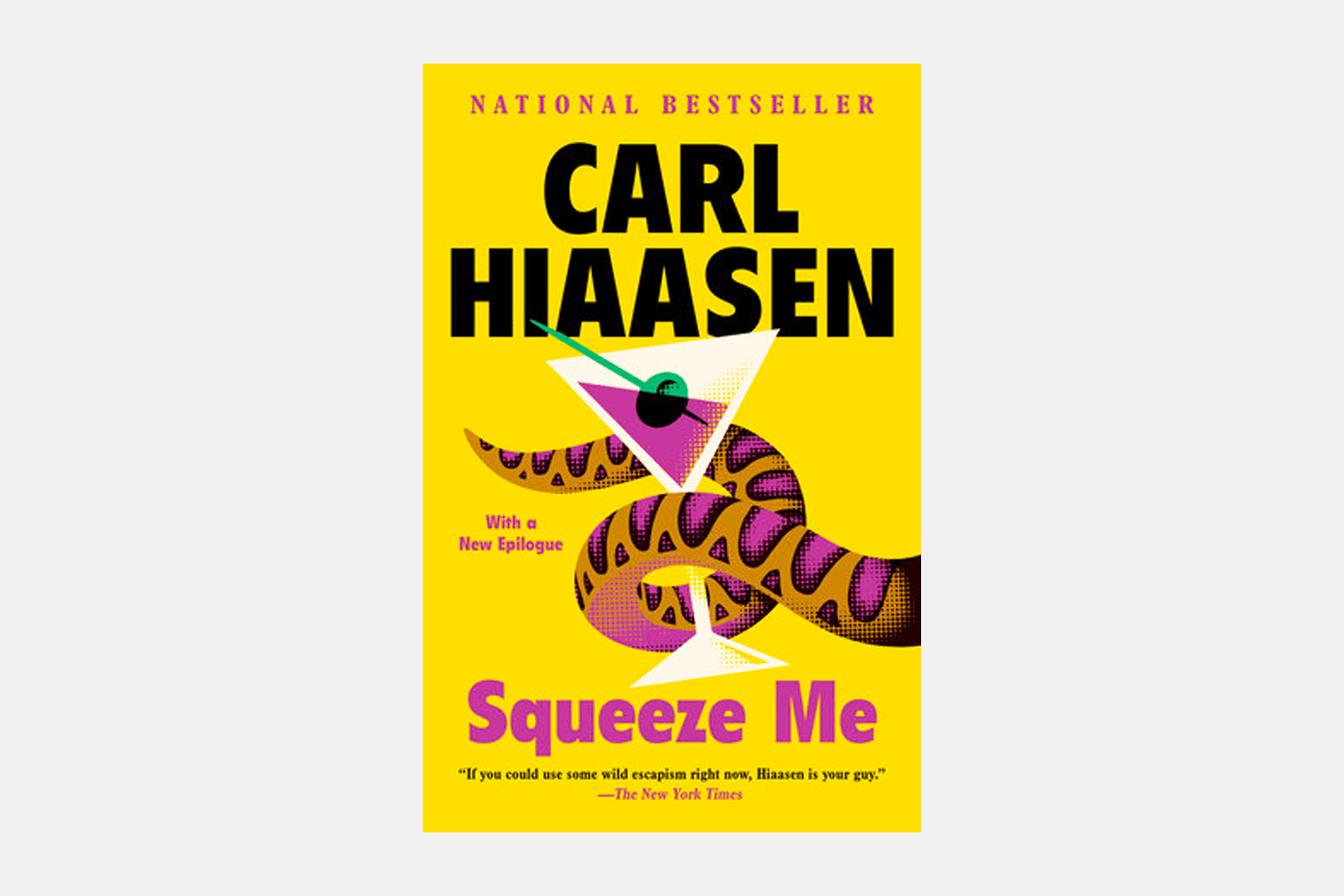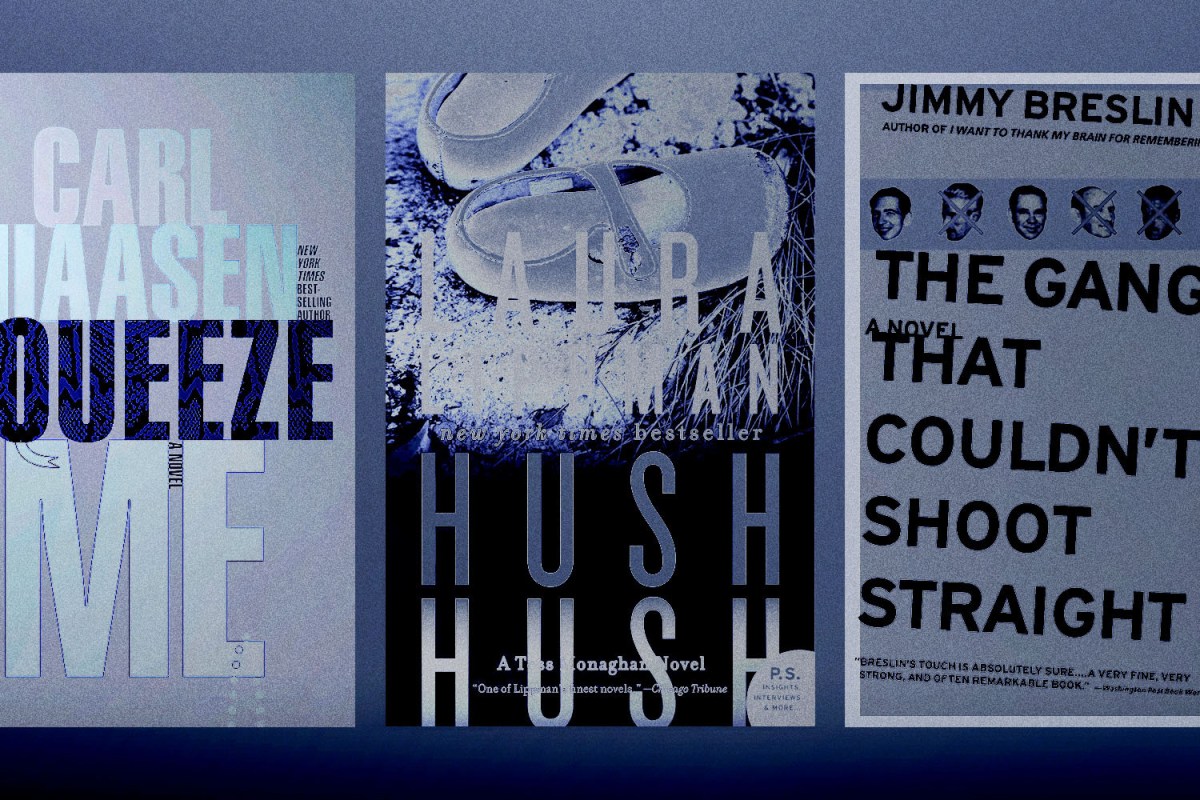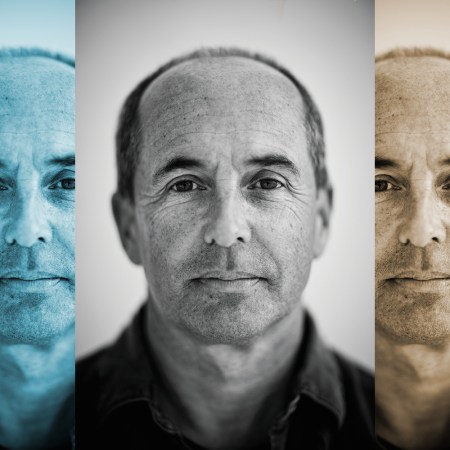Every reader goes through phases with their selection habits. Last year, for example, I wanted as little to do with the modern world as possible, for reasons I’m sure you can understand. I didn’t want to read anything set in the last decade and I certainly didn’t feel like reading any dystopian novels written to reflect an ominous future. I wanted out of these times and, for about nine months, out of this place as well. Escapism. Nostalgia. My fiction intake was a pretty steady diet of P.G. Wodehouse, Nancy Mitford, Evelyn Waugh, Vita Sackville-West and Anthony Powell. I wanted to read about British people from the last century and their very British problems that were sometimes funny, but often just sad enough.
But by the new year I was looking for something else. I wasn’t sure what. I knew I was watching a lot of neo-noir films from the 1980s and liked that particular vibe. I wanted something gritty but fun.
And then I read about the writer Carl Hiaasen retiring his column at the Miami Times, and I thought about how Hiaasen is a writer who has been in my life in varying ways since I was a little kid, and how I had read two of his books in the past and really liked them, but I’d never immersed myself in his work despite remembering my family talking about something he wrote in the late 1980s over dinner at some restaurant in Miami, and how mature I felt at a young age hearing adults talk about something they had read. So I decided maybe a trip through Hiaasen’s Florida was in order. I read five of his novels, including his most recent, Squeeze Me, a sendup of the Trump years in South Florida, the first novel directly referencing these recent times that I read and enjoyed amid, well, these recent times. There was just something about the way Hiaasen told the story — the attention to certain details, the way the story felt almost reported — that grabbed me and didn’t let me go.
The thing about Hiaasen is he’s a reporter by trade. He got his start in the newspaper business and started writing novels in his free time. The more I started to think about that, the closer I got to understanding exactly what it was about Hiaasen’s work that stood out to me in a sea of lesser mystery novels and thrillers: Hiaasen truly understands the world he writes about because he’s been mired in it for years. And so, with that, I had found my next reading obsession: novels by journalists.

Now, I should acknowledge that journalists turning to fiction isn’t exactly a new or novel thing. Charles Dickens was a parliamentary reporter long before giving us a template for so much modern fiction. Mark Twain was a journalist; Hemingway got his start at The Kansas City Star; all the titans of New Journalism, from Wolfe to Didion, wrote for magazines and newspapers. Not all journalists can write novels and not all novelists need to work a beat before they can churn out great works of fiction. But in the debate over whether it’s better to go the MFA route or just move to New York City if you want to become a writer, a third option might be best of all: spend some time reporting news. First-hand experience has long been overlooked as the best teacher for aspiring storytellers. I get that a college program or access to the publishing world might help some young writers get noticed, but there’s just something about working a story — finding characters, asking questions, listening — that you can’t get from a professor.
With that in mind, I started looking up more crime novels written by journalists. I tracked down a new edition of The Gang That Couldn’t Shoot Straight by Jimmy Breslin. I found some of the references a little dated, given the book came out in 1969, and that might be the one rub when it comes to journalist novels: they’re so entrenched in the here and now for their day jobs that it bleeds into their fiction. I found that with more than a few books, but it sometimes added to the charm. While I didn’t read it during my journalist-as-novelist phase, and it isn’t really a crime novel (although there are crimes committed), Tom Wolfe’s The Bonfire of the Vanities is so 1980s that it makes the novel even more interesting for me. Picking out the outdated references made it easier to get through nearly 700 pages of Wolfe’s famous verbosity.
After my experience with Breslin, I felt like I wanted something more immersive, maybe less madcap. So I decided to get myself into a series. I picked Laura Lippman’s Tess Monaghan books since I’d read and loved a few of her standalone novels in the past. I instantly got into the books, enjoying the investigations of a journalist-turned-P.I. in Baltimore. I burned through the first three (out of 12) in the series in a few weeks. Then I asked Lippman, who graduated from reporting at The Baltimore Sun to writing best-selling novels, how her experience helped her. She mentions that she came out of a newsroom with a “disproportionate” number of crime writers: Sujata Massey, Stephen Hunter, Dan Fesperman and “another colleague whose name escapes me” (I’d guess she means her husband David Simon, author of Homicide: A Year on the Killing Streets and creator of The Wire).
“The glib answer is maybe it’s because we all wanted to kill someone. But the more earnest answer is that newspaper work is great training in understanding how anything and everything works. The things I had to learn on the fly. I often think about the day I reported to work and was told that the city’s water filtration system had gone down. I had until 5 o’clock, basically, to learn how the city’s water was filtered, why it was filtered outside its own jurisdiction, how it got to consumers, what the bug was and how it would be fixed. Or, another time, I had to basically take a crash course in how capital projects are financed and why refinancing the loan could not be considered a construction overrun. (An editor, spooked by the morning paper’s edition of the same story, changed mine and, alas, I was right. My morning colleague apologized to me as we both ended up being ridiculed by the governor on local radio.)”
Lippman adds:
“If one can do these arcane and mundane things on deadline, plotting a crime seems far less intimidating.”
Maybe it’s just a personal thing. Maybe I like fiction that understands the ins and outs of daily life, and doesn’t feel like it was overly researched. Don’t get me wrong, I love fiction that plays around with a real time and place, but sometimes it can feel forced. I find, more often than not, when I’m reading journalists-turned-fiction writers like Lippman and Hiaasen, that the rhythm is very natural. It’s enjoyable and easy to get into. It might not be literary fiction (I hate that term), but in most cases, the writing is top-notch and the action and suspense is impossible to beat.
And if there are any writers looking to go down a similar path Lippman took, she has one piece of advice. “Volunteer to do weather stories. If you can write about a five-day heat wave and no two stories are alike, that’s invaluable training.”
This article was featured in the InsideHook newsletter. Sign up now.
























